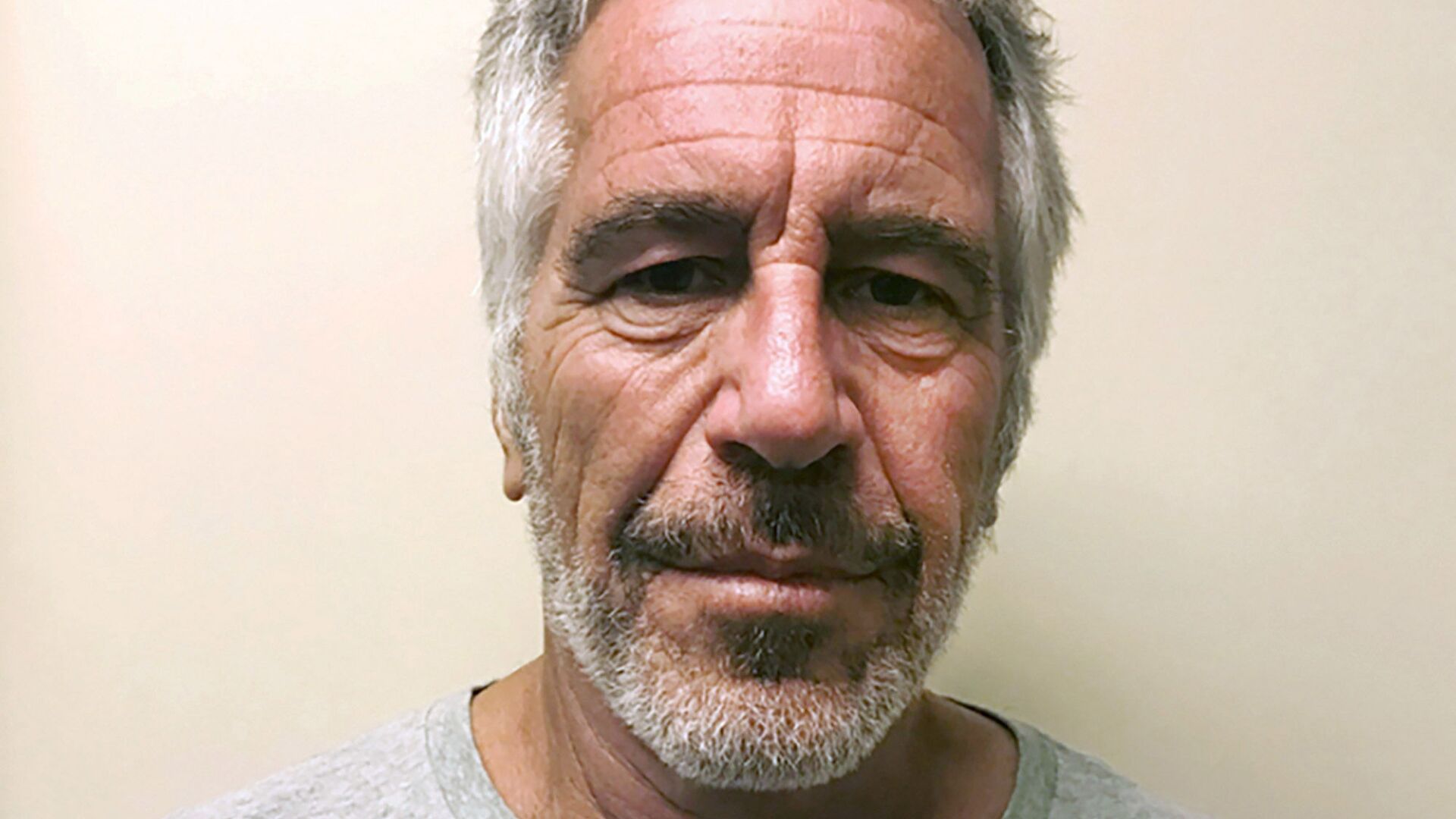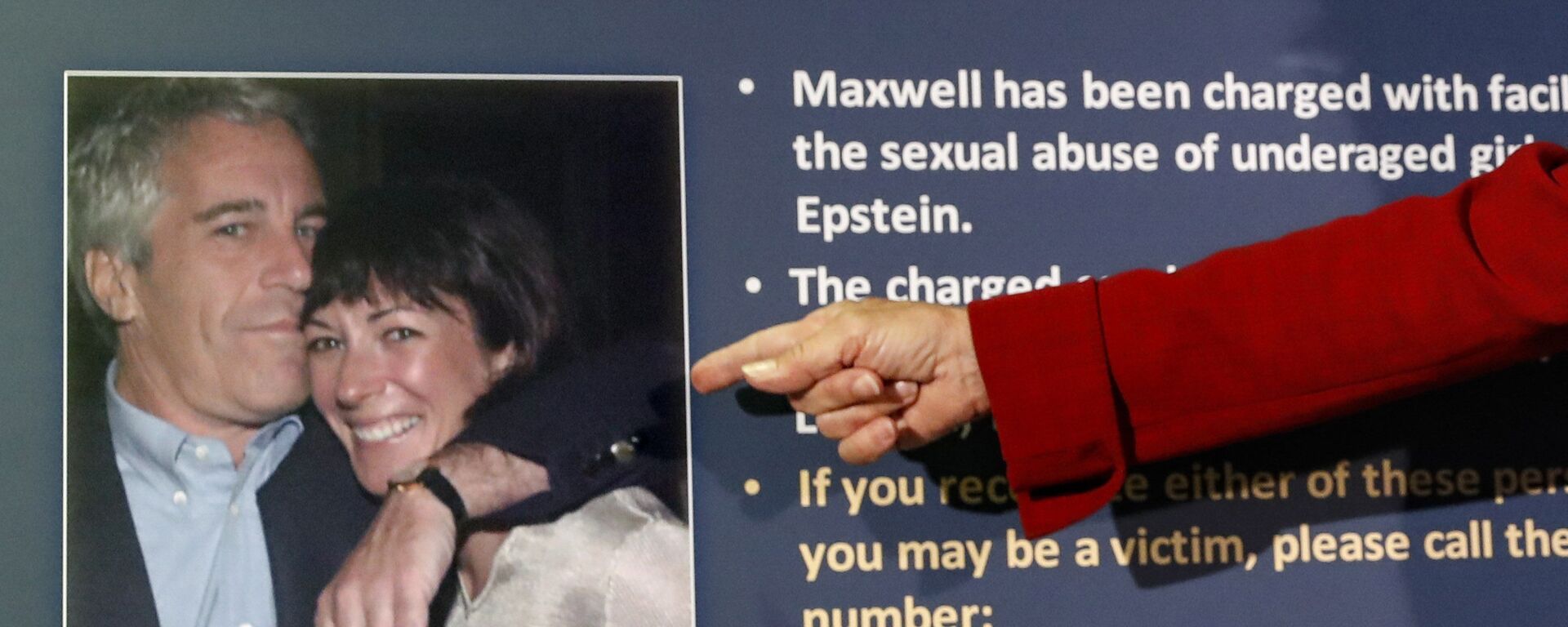https://sputnikglobe.com/20230628/doj-watchdog-misconduct-negligence-led-to-epstein-suicide-1111512831.html
DoJ Watchdog: Misconduct, Negligence Led to Epstein Suicide
DoJ Watchdog: Misconduct, Negligence Led to Epstein Suicide
Sputnik International
A report released on Tuesday by the Justice Department's watchdog outlined how a mixture of "misconduct and outright job performance failures" by the Federal Bureau of Prisons allowed Jeffrey Epstein to commit suicide.
2023-06-28T00:24+0000
2023-06-28T00:24+0000
2023-06-28T00:23+0000
americas
jeffrey epstein
michael horowitz
department of justice
jeffrey epstein's apparent suicide
https://cdn1.img.sputnikglobe.com/img/07e4/08/05/1080072785_0:282:2000:1407_1920x0_80_0_0_791b198d8b2a799ae95f9fe1b423f873.jpg
A report released on Tuesday by the Justice Department's (DoJ) watchdog has outlined how a mixture of "misconduct and outright job performance failures" by the Federal Bureau of Prisons allowed disgraced financier Jeffrey Epstein to commit suicide.On August 10, 2019, Epstein was found unresponsive in his jail cell in a death that has since been ruled a suicide. The DoJ watchdog's report found that most of the surveillance cameras around his cell had been malfunctioning for more than a week, and that workers assigned to check on him did not do so because they were overworked.Inspector General Michael Horowitz blamed numerous issues that gave Epstein the opportunity to kill himself, including that the jail failed to assign him a cellmate despite the psychology department informing 70 employees that Epstein should not be left alone after a previous suicide attempt two weeks earlier. After that attempt, Epstein was taken off suicide watch just 31 hours later.Horowitz also said that the section’s guards lied on prison logs, saying they had done their rounds when they were really sleeping and shopping online. The report also notes Epstein had extra bed linens he used to kill himself, and was allowed a personal call that was unmonitored – in violation of agency policy – the day before his death.The report also notes Epstein changed his living will the day before his death, but jail officials were unaware of this change.Workers tasked with guarding Epstein on the night of his death were working overtime. One was not normally assigned to guard prisoners and was working for a fifth-straight day of overtime, the other was working a second eight-hour shift in one day.Horowitz identified 13 employees with performance failures that contributed to Epstein’s death, including four employees he recommended be criminally charged. Authorities only elected to charge two employees; both took plea deals to avoid jail time and no longer work with the bureau.The bureau said it has accepted the eight recommendations made by Horowitz and has updated its suicide watch policies.Epstein’s death led to a myriad of conspiracy theories online, to the point that “Jeffrey Epstein didn’t kill himself” has become a meme. Skeptics of the suicide story doubt such a high-profile prisoner would be allowed enough time alone to carry out a suicide and find it suspicious the financier had connections to some of the richest and most powerful people in the world, would end up dead before he could name names.Horowitz’s investigation, like the investigations before it, found no evidence of foul play. It notes the cameras that were functioning did not see anyone enter Epstein’s cell, and found no evidence money had been exchanged between the prison guards.Still, that is not likely to stop the conspiracy from continuing to grow, more so with the revelation of Epstein being allowed an unmonitored call the night before his death. That tidbit is likely to fuel the conspiracy further.
https://sputnikglobe.com/20230620/internal-docs-offer-new-details-on-jeffrey-epsteins-ties-to-jpmorgan-chase-1111309645.html
https://sputnikglobe.com/20230531/new-docs-id-big-names-who-maintained-ties-with-epstein-long-after-child-sex-conviction-1110806816.html
americas
Sputnik International
feedback@sputniknews.com
+74956456601
MIA „Rossiya Segodnya“
2023
News
en_EN
Sputnik International
feedback@sputniknews.com
+74956456601
MIA „Rossiya Segodnya“
Sputnik International
feedback@sputniknews.com
+74956456601
MIA „Rossiya Segodnya“
jeffrey epstein, federal bureau of prisons, suicide, justice department, inspector general michael horowitz, watchdog
jeffrey epstein, federal bureau of prisons, suicide, justice department, inspector general michael horowitz, watchdog
DoJ Watchdog: Misconduct, Negligence Led to Epstein Suicide
Jeffrey Epstein's former girlfriend and companion was sentenced to 20 years in prison for her connection to Epstein's sex trafficking ring.
A report released on Tuesday by the Justice Department's (DoJ) watchdog has outlined how a mixture of "misconduct and outright job performance failures" by the Federal Bureau of Prisons allowed disgraced financier Jeffrey Epstein to commit suicide.
On August 10, 2019, Epstein was found unresponsive in his jail cell in a death that has since been ruled a suicide. The DoJ watchdog's report found that most of the surveillance cameras around his cell had been malfunctioning for more than a week, and that workers assigned to check on him did not do so because they were overworked.
Inspector General Michael Horowitz blamed numerous issues that gave Epstein the opportunity to kill himself, including that the jail failed to assign him a cellmate despite the psychology department informing 70 employees that Epstein should not be left alone after a previous suicide attempt two weeks earlier. After that attempt, Epstein was taken off suicide watch just 31 hours later.
Horowitz also said that the section’s guards lied on prison logs, saying they had done their rounds when they were really sleeping and shopping online. The report also notes Epstein had extra bed linens he used to kill himself, and was allowed a personal call that was unmonitored – in violation of agency policy – the day before his death.
The report also notes Epstein changed his living will the day before his death, but jail officials were unaware of this change.
Horowitz called it a “combination of negligence, misconduct and outright job performance failures” by the Federal Bureau of Prisons and employees.
The Federal Bureau of Prisons is the largest agency under the Department of Justice, with an $8 billion annual budget and more than 30,000 employees.
Nonetheless, it has been beset by staffing shortages, along with sexual abuse and other criminal misconduct by its guards.
Workers tasked with guarding Epstein on the night of his death were working overtime. One was not normally assigned to guard prisoners and was working for a fifth-straight day of overtime, the other was working a second eight-hour shift in one day.
Horowitz identified 13 employees with performance failures that contributed to Epstein’s death, including four employees he recommended be criminally charged. Authorities only elected to charge two employees; both took plea deals to avoid jail time and no longer work with the bureau.
The bureau said it has accepted the eight recommendations made by Horowitz and has updated its suicide watch policies.
Epstein’s death led to a myriad of conspiracy theories online, to the point that “Jeffrey Epstein didn’t kill himself” has become a meme. Skeptics of the suicide story doubt such a high-profile prisoner would be allowed enough time alone to carry out a suicide and find it suspicious the financier had connections to some of the richest and most powerful people in the world, would end up dead before he could name names.
Horowitz’s investigation, like the investigations before it, found no evidence of foul play. It notes the cameras that were functioning did not see anyone enter Epstein’s cell, and found no evidence money had been exchanged between the prison guards.
Still, that is not likely to stop the conspiracy from continuing to grow, more so with the revelation of Epstein being allowed an unmonitored call the night before his death. That tidbit is likely to fuel the conspiracy further.
Epstein was facing up to 45 years in prison for the criminal charges he faced, including sex trafficking of minors and conspiracy to engage in sex trafficking of minors.
He was previously convicted in 2008 of procuring for prostitution a girl below the age of 18 and felony solicitation of prostitution.




